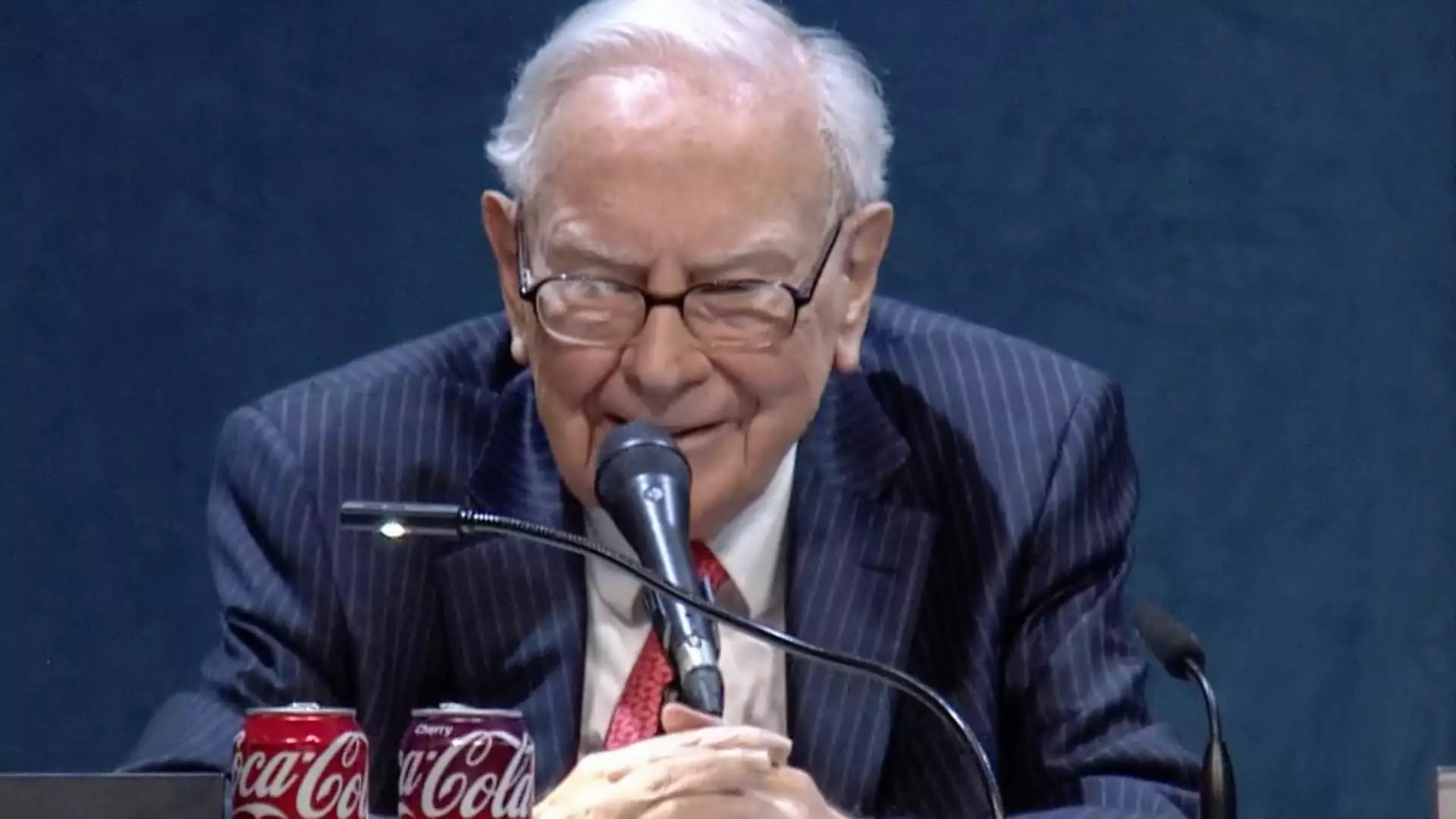In a surprising turn of events, Berkshire Hathaway’s recent quarterly results unveiled troubling watermarks in its financial health, signaling that even giants can stumble. Operating earnings plummeted to $9.64 billion, an unsettling 14% drop from the previous year, and this descent begs critical scrutiny. Traditionally a bastion of sound investment strategies, Buffett’s conglomerate now finds itself grappling with declining profitability indicators, contrasting sharply with last year’s performance where earnings swelled to a more reassuring $11.22 billion.
With operating earnings per share tumbling from $5.20 to $4.47, investors are likely feeling anxiety over the company’s steadfastness in an unpredictable market. The consensus was already muted, with analysts predicting earnings of $4.72 per share. This discrepancy further casts doubt on Buffett’s revered financial acumen, feeding into a narrative that perhaps the time-honored investing sage is navigating rougher seas than he would let on.
Insurance Woes: An Unforeseen Crisis
One major contributor to the sharp decline in earnings rests at the doorstep of Berkshire’s insurance subsidiaries, which experienced a staggering 48.6% dive in underwriting profits. The $1.34 billion reported starkly contrasts with the preceding year’s $2.60 billion, exposing vulnerabilities that can no longer be glossed over. The impact of significant external events, particularly the Southern California wildfires, incurred a staggering $1.1 billion loss, further complicating matters.
As someone who has long preached the gospel of prudent risk management, it genuinely seems perplexing why such calculations failed to account for environmental disruptions that can wreak havoc on an insurer’s bottom line. This trend could prompt investors to reevaluate Berkshire’s model, particularly in the context of mounting climate-related risks increasingly affecting the global economy.
The Currency Conundrum
Adding another layer to this multifaceted issue is the impact of foreign exchange fluctuations, which bolstered or hindered previous earnings in unexpected ways. In Q1, Berkshire reported losses of approximately $713 million due to a depreciating dollar, a significant contrast to a $597 million gain during the same quarter a year earlier. Such volatility might lead one to question whether reliance on international markets—traditionally viewed as a diversification strategy—could soon morph into exposure that scares off cautious investors. This currency dip serves as a critical reminder that a global footprint doesn’t guarantee immunity from local economic tremors.
Geopolitical Shadows
A daunting air of uncertainty looms over Berkshire Hathaway, stemming from geopolitical events and trade tariffs, a situation brought to the forefront by the policies of former President Donald Trump. While the company’s earnings report indicated that they couldn’t predict future impacts from tariffs “at this time,” the ambiguity surrounding international relations paints a grim picture for multinational operations moving forward.
What once seemed a plausible cornerstone of Buffett’s long-term strategy is now deep in the muck of unpredictability, overshadowed by the fear of economic wars that could create cascading effects. The phrase “considerable uncertainty remains” should trigger alarm bells among stakeholders and heightens concerns that the company’s long-standing resilience may be faltering in the face of rising political tensions.
A Cash Hoard Versus a Shaky Market
Interestingly, while Berkshire’s operating income faces a downturn, the company saw its cash reserves swell to a gargantuan $347 billion, up from $334 billion. Many might interpret this cautious hoarding of cash as a defensive mechanism, signaling that Buffett is preparing for choppy market conditions. Yet the reluctance to reinvest that cash into the market suggests indecisiveness rather than strategic foresight.
Over the past ten quarters, Berkshire has emerged as a net seller of stocks, raising further questions about Buffett’s confidence in his own investment philosophy. A reluctance to deploy financial resources speaks volumes in an investment culture that typically emphasizes active engagement to seize market opportunities.
Long-term Vision Amidst Short-term Hurdles
Berkshire Hathaway has a history of urging investors to take a long-term perspective when evaluating quarterly results; however, the alarming drop in earnings coupled with broader economic insecurities raises challenging questions about the practicalities of that advice. In an environment where immediate returns often drive investor sentiment, the challenge for Buffett will be maintaining confidence without succumbing to the panic of deteriorating performance.
As we dissect the disheartening developments at Berkshire Hathaway, one thing becomes abundantly clear: navigating the future won’t simply require sharp investment acumen but a proactive response to systemic challenges that could reshape the financial landscape for the company. The uncertainty present today may raise valid concerns among shareholders, yet it’s the manner in which the company chooses to address those issues that will ultimately determine its resilience and reputational strength going forward.

